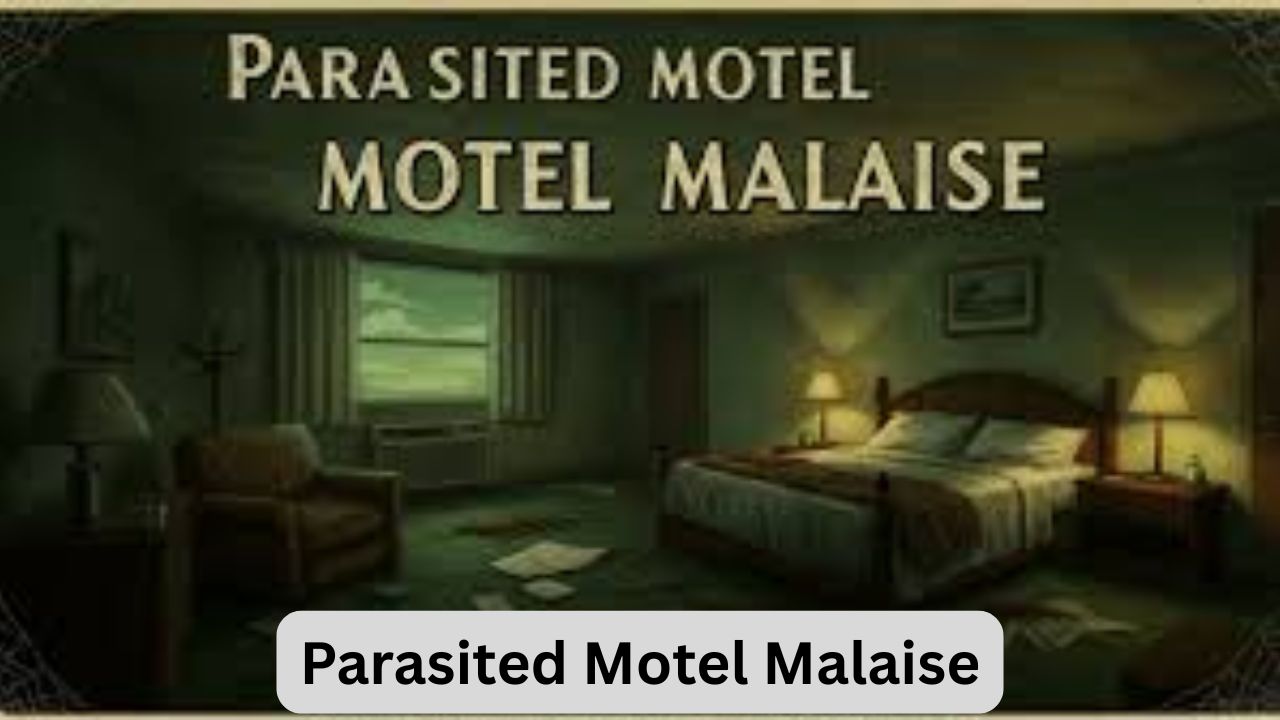
Introduction
In an age of frequent travel and transient accommodations, certain health issues remain largely overlooked. One such concern is —a condition stemming from prolonged exposure to parasitic organisms in temporary lodgings like motels. This phenomenon is characterized by persistent fatigue, digestive issues, and general discomfort. Recognizing early is vital, as it can significantly affect overall health and daily functioning.
What Does Parasited Motel Malaise Mean?
refers to a persistent state of ill health caused by exposure to parasites and microbial contaminants in temporary living environments. The term combines “parasited,” indicating the presence of parasites, with “malaise,” denoting a general feeling of unwellness. It highlights how repeated exposure to unclean accommodations can affect physical and mental well-being.
Causes of Parasited Motel Malaise
Understanding the causes of parasited motel malaise is key to prevention and recovery. Multiple factors contribute to its development:
1. Contaminated Lodging Environments
Motels and temporary lodgings often experience high guest turnover, making thorough cleaning a challenge. Bedding, furniture, and bathrooms can harbor parasitic organisms that contribute to parasited motel malaise.
2. Compromised Immunity Due to Travel Stress
Frequent travelers often face irregular sleep schedules, poor nutrition, and stress. These factors weaken the immune system, making individuals more vulnerable to parasitic infections.
3. Poor Dietary Habits
Limited access to healthy meals while traveling can disrupt the gut microbiome, reducing the body’s ability to fight parasitic invasions, a key contributor to parasited motel malaise.
4. Environmental Exposure
Certain parasites and microbes thrive in humid or poorly ventilated spaces. Travelers staying in such environments repeatedly may develop chronic symptoms associated with this condition.
Recognizing the Symptoms of Parasited Motel Malaise
Symptoms of parasited motel malaise can range from mild discomfort to severe systemic issues. Early identification improves recovery prospects.
1. Chronic Fatigue
Persistent exhaustion that doesn’t improve with rest is a common symptom. Travelers often underestimate the severity, attributing it to travel-related tiredness.
2. Digestive Disturbances
Frequent diarrhea, bloating, and stomach cramps may indicate parasitic involvement, a hallmark of parasited motel malaise.
3. Cognitive Impairment
Brain fog, poor concentration, and memory lapses are frequently reported, demonstrating how environmental exposure affects overall well-being.
4. General Malaise and Weakness
A sense of overall unwellness, muscle aches, and low energy levels are characteristic symptoms that differentiate parasited motel malaise from ordinary travel fatigue.
Diagnosis: When to Seek Medical Attention
Because parasited motel malaise can mimic other health conditions, professional evaluation is essential. Doctors typically recommend:
-
Blood and stool tests to detect parasites and bacterial infections
-
Medical history assessment focusing on travel patterns and accommodation conditions
-
Lifestyle analysis to identify factors exacerbating symptoms
Timely diagnosis ensures targeted treatment and reduces the risk of long-term complications.
Treatment and Recovery Strategies
Addressing parasited motel malaise involves medical intervention alongside lifestyle modifications.
1. Medical Interventions
Anti-parasitic medications may be necessary for confirmed infections. In some cases, supportive therapies such as probiotics, hydration, and nutritional supplementation help restore gut health and overall well-being.
2. Improving Lodging Hygiene
Travelers should prioritize accommodations with stringent cleanliness standards. Disinfecting high-touch surfaces, washing bedding, and using personal protective barriers are practical measures to minimize parasitic exposure.
3. Lifestyle Adjustments
Adequate sleep, balanced nutrition, and stress management support immune function, reducing the impact of . Staying hydrated and maintaining a healthy diet while traveling further aid recovery.
4. Preventive Measures
-
Choose well-reviewed accommodations with proven hygiene protocols
-
Limit prolonged stays in high-risk lodgings
-
Carry personal sanitization supplies for consistent protection
Long-Term Outlook
With proper management, most individuals recover fully from . Awareness and preventive measures are crucial for frequent travelers. Monitoring for recurring symptoms and maintaining good health practices reduce the likelihood of relapse.
Conclusion
may seem unusual, but it underscores the importance of environmental health and personal well-being in transient living situations. By understanding its causes, recognizing symptoms early, and implementing preventive strategies, travelers can protect themselves from this hidden health threat. Proactive management ensures that short-term accommodations don’t compromise long-term health, allowing individuals to travel safely and comfortably.




